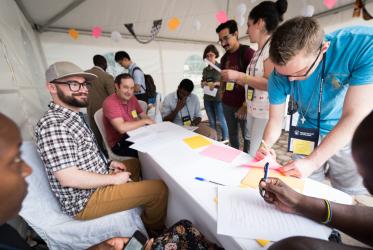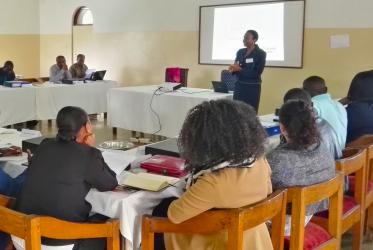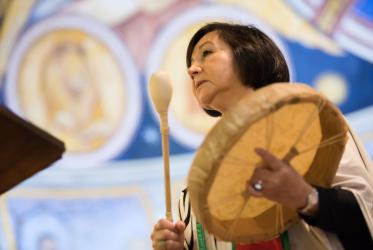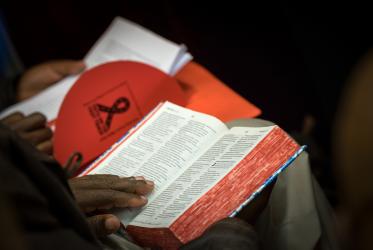Displaying 1 - 20 of 20
‘Sokoni’ transforms marketplace into mission
13 March 2018
GETI students plant trees, in service for greener future
07 March 2018
GEM School: integrating theology and economics
05 September 2017
African youth takes stand at first ever WCC Eco-School
03 August 2017
Applications open for WCC Eco-School
10 May 2017
Seven weeks of Lent highlight water crisis in Africa
01 March 2017
Advocates urge transition to low-carbon economy, clean energy
09 November 2016
Bible study gives hope as youth reflect on HIV
02 November 2016
Honest talk blossoms between youth, theologians in Cote d’Ivoire
14 September 2016
Methodist Church in Kenya consecrates second woman bishop
05 February 2016
Letters to the future: Eco-justice visions in South Africa
13 December 2012










